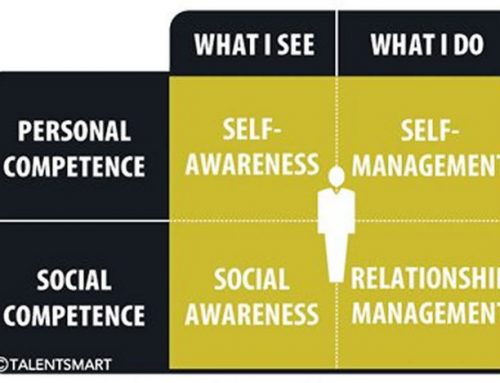Franchising Your Business
Determining whether a business is ready to be turned into a franchise is a crucial decision many entrepreneurs face. One person who helps answer some of those questions is Christopher Conner, president of Franchise Marketing Systems.
Conner has been in the franchise industry for more than a decade. He has experience in all aspects of franchising, including marketing, sales, strategic planning, research and operations. In his current role, Conner leads Franchise Marketing Systems in franchise consulting and franchise development projects. He has worked with franchise systems throughout the United States, Middle East, India and Europe.
Prior to joining Franchise Marketing Systems, Conner spent more than six years as a vice president with Francorp Inc. where he provided franchise development as well as consulting and management services to both established and new franchisors. He has also worked in franchise relations for Wyndham Worldwide.
We recently spoke with Connor about turning your business into a franchise and becoming a franchisee.
Q. How do you know if your business is ready to be franchised?
A. Typically, the market will tell you when you should start looking into franchising.
People will ask whether you could offer them a franchise or open a location in their area. There will be interest from third parties to invest in your business and people who want to be part of what you are doing.
From a technical standpoint, the business will be generating enough profits that you feel financially stable enough to consider growth opportunities. Many times when a business owner starts considering a new corporation location, they should also investigate franchise expansion as a growth channel.
Q. What are the biggest mistakes entrepreneurs make when trying to turn their business into a franchise?
A. Many entrepreneurs fail to recognize the rules and regulations that surround franchising. It is imperative to have good legal counsel and understand what can and cannot be done when offering an investment opportunity to a third party.
Whether someone intends to or not, when you sell a business opportunity that includes a brand and operating system for a payment, you need to be compliant with franchise regulations at the federal and state levels. Start off with the correct disclosures and filing before you start promoting your franchise, and you will avoid headaches and liability down the road.
The second area of mistakes I’ve run into in new franchise launches are the entrepreneur’s lack of understanding or focus on sales and marketing for the franchise they are about to take to market. Great franchise systems have been put to market for decades and fallen flat without any real results due to business owners’ lack of dedication to marketing and selling the brand as a franchise.
Selling a franchise is unique and requires a focused effort for lead generation and franchise sales. Plan for this, and if you don’t have the resources or ability to sell, hire people who can help you.
Q. When launching a franchise, are there a certain number of locations that you should start with?
A. There is not necessarily any set number of locations you should have when considering whether to franchise your business. Many great franchise systems started with one location that was validated, financially strong and had significant market opportunity for growth. With that said, having more than one location certainly helps in validating that the concept can be duplicated in more than one market.
Q. When starting a business, what are the advantages of buying a franchise versus starting your own?
A. Franchising provides a new entrepreneur with information and data needed to make a better investment decision. The success rate of new franchise businesses greatly exceeds that of startup businesses in general largely because the franchise investor was able to make a better buying decision before the business opened.
Good franchise investors use this information, analyze it and act on data available to them prior to making an investment. Once the franchisee has bought in, they then benefit from operating systems, proven business methodology and business practices that have been documented by the franchisor. As the system reaches maturity, franchisees benefit from economies of scale, group advertising and innovation that is only possible by being part of a larger entity.
Q. How do you know what type of franchise you would be a good fit for?
A. My recommendation for a potential franchise investor is to start with a self-analysis of what skills you bring to a new business, what experience you have that could be leveraged and what types of business activities you enjoy.
One of the biggest mistakes I’ve witnessed in supporting people make investment decisions is for someone to buy into a franchise because they appreciate the business as a consumer. Make sure that you have the skills and interest in what the business will require of you on a daily basis and then find the businesses that match up with that skillset.
Q. What are the most important factors to consider when choosing a franchise?
A. The most important factors when considering which franchise to choose first needs to start with profitability. It can be a common mistake to confuse big franchise brands with the most profitable franchises. Look closely at the unit-level economics and understand what the bottom line is for the business you will own as a franchisee.
Second, verify whether you can work well with the franchisor. This relationship is like a partnership, and you will need to get along with one another. The company culture, communication styles and overall company mission should align with what is important to you.
Third, confirm validation of the model you are considering investing into. The franchisor should have enough time and experience under their belt to be able to offer you a business model that is proven, structured and leaves no stone unturned so that when you invest in the business, you don’t have to figure out what the franchisor should be providing you in the franchise model.
Q. How does Franchise Marketing Systems help franchise owners?
A. Franchise Marketing Systems is a franchise development firm that represents the franchisor in building the strategy, systems and modeling to offer a business as a franchise.
The company was founded in 2009 to specifically help businesses that were, for the first time, getting into franchising and needed the resources, support and guidance to not only become a franchise but could effectively market and sell the new franchise model. Franchise Marketing Systems works with new franchisors to market, sell and promote their brand. The emphasis and focus of Franchise Marketing Systems’ value proposition is to help clients in recruiting the first five to 10 units so that the model is able to gain traction and validate as a franchise offering.







Leave A Comment
You must be logged in to post a comment.